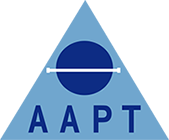AAPT CPD Policy and Commitment
What is CPD?
Across the UK workforce, Continuing Professional Development (CPD) is expected of individual professionals in most sectors. It is generally governed by sector-specific professional bodies or regulators. Employers also increasingly expect their staff to undertake CPD and may even measure them on it.
Anyone who is a member of a professional body is likely to have CPD requirements laid out for them by the body, rather than by their employer. There are numerous professional bodies and membership associations nationally. They represent all industries and professions (i.e. the AAPT represents Anatomical Pathology Technologists) and many have CPD policies known as CPD schemes.
It is the term used to describe the learning activities in which professionals engage to develop and enhance their knowledge and competencies. It enables learning to become conscious and proactive, rather than passive and reactive
CPD combines different approaches to learning, such as training workshops, conferences and networking events, e-learning, best practice techniques and ideas sharing, all designed for an individual to improve and realise effective professional development.
Accompanied by such growth is the acceptance that academic qualifications must offer more vocational and skills-based or ‘practical’ learning. This has been true of the overhaul of the APT qualifications over the last decade.
Engaging in CPD ensures that both academic and vocational qualifications do not become out-dated or obsolete, allowing individuals to continually ‘up skill’ or ‘re-skill’, regardless of occupation, age or educational attainment
AAPT CPD platform
CPD enables AAPT members to sustain, refresh and improve their knowledge and practice. Recording professional training and experiences demonstrates improvements in standards, skills and services, and reflects on the individual’s commitment to patient care and personal development.
Employers will often support an individual’s CPD and may even contribute to CPD plans. However, the onus is very much with the individual to source CPD training activities that meet their personal learning needs and objectives.
Today the AAPT makes a ten-point commitment to members:
- The AAPT will provide an online platform to allow members to record and reflect on their CPD. For the APT, this is the CPDMe AAPT platform and is a benefit of membership
- The AAPT CPD platform will have the capability to allow members to meet CPD standards registration requirements with the Science Council and Academy of Healthcare Science
- The AAPT will provide an Annual Educational Event (AEE) for CPD purposes
- The AAPT will provide at least two online webinars annually for AAPT members
- The AAPT will provide at least one, and ideally two, training events annually for members
- The AAPT will provide on-line educational multiple-choice question exercises, Read Test & Reflect, at least twice a year
- The AAPT will provide branded certification for larger CPD events such as the AEE and consent training
- The AAPT will CPD approve events via its CPD team
- The AAPT will be available to answer questions from members with regard to any CPD matters
- The AAPT will judge and provide the Science Council with CPD-award worthy registrants for their annual CPD awards event based on annual CPD review audit returns
We ask that AAPT members commit to CPD in the following ways:
- Keep a continuous CPD diary of activities undertaken using the CPDMe platform
- Use the CPDMe platform diary for the planning for future CPD
- Aim for a minimum of 20 hours recorded CPD per year
- Access relevant recorded CPDMe webinars
- Apply for professional registration and link their CPD to the either Science Council or Academy for Healthcare Science CPD standards
- Reflect on each and every CPD activity undertaken
- Upload documents for each CPD activity when relevant as a useful reference
References and links
Science Council CPD FAQs (including Maternity guidance)
Developing a CPD policy (Society of Association Management)

